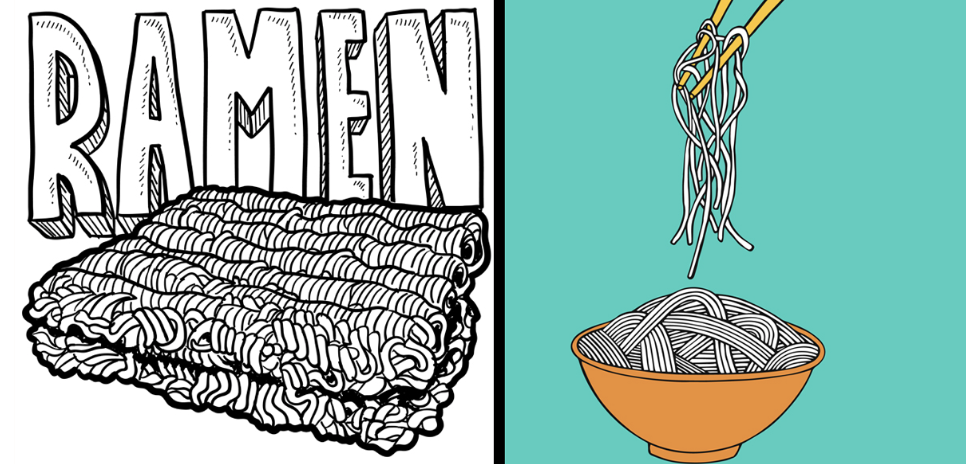
Ramen noodles are among the most popular food items in the world thanks to their long shelf life and the fact that they’re cheap, delicious, and easy to make. The Chinese alone ate over 44 billion packets in 2014 according to statistics on the global demand for instant noodles compiled by the World Instant Noodles Association. In that same year Americans consumed over 4 billion packets and demand for the tasty noodles has remained relatively steady for years!
The vast majority of all those noodles being eaten are processed, but many people do make homemade, fresh versions of ramen as well. The processed kind has a far longer shelf life than non-processed noodles because it contains Tertiary-butyl hydroquinone (TBHQ), a food additive that’s often used as a preservative. Many highly processed, bargain-priced foods contain TBHQ which happens to be a chemical byproduct of the petroleum industry. It’s also hard to digest, which is why a Massachusetts General Hospital doctor decided to conduct a small, informal study on the noodles.
Dr. Braden Kuo, a gastroenterologist, set out to document and compare how the human stomach digests fresh versus preserved ramen noodles. To help him do this a tiny camera called a “smart pill” was used by participants who swallowed them down along with their meal. The accompanying clip shows some of the footage captured inside of the stomachs trying to break down the fresh and processed noodles. As you can see, the comparison is striking at both the 20 minute and 2 hour intervals. Dr. Kuo explains the differences may indicate that the chemical preservatives and additives remain in the digestive tract for longer periods of time, but cautions that larger and more extensive studies need to be done to draw any real conclusions.
Of particular concern is the potential carcinogenic effect that TBHQ may have on human health. Existing studies that have been done involving TBHQ showed a correlation between high doses of the chemical and cancerous stomach tumors in lab animals. Even still, the chemical is approved for human consumption and considered safe, yet it’s true long-term health implications are relatively unknown.
Fresh food is always better for your body than any cheap, processed alternative option will ever be. Check out the video and let us know what you think!
Please Share This With Family and Friends










